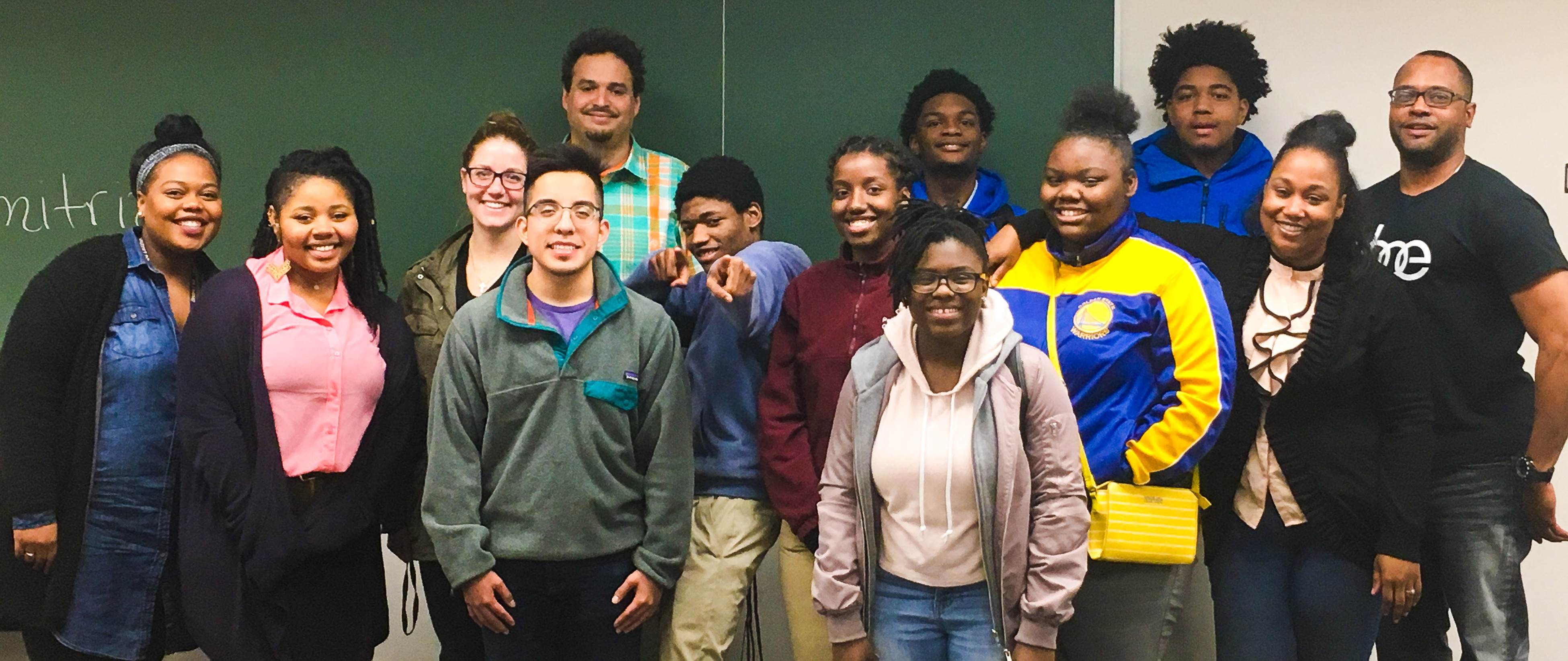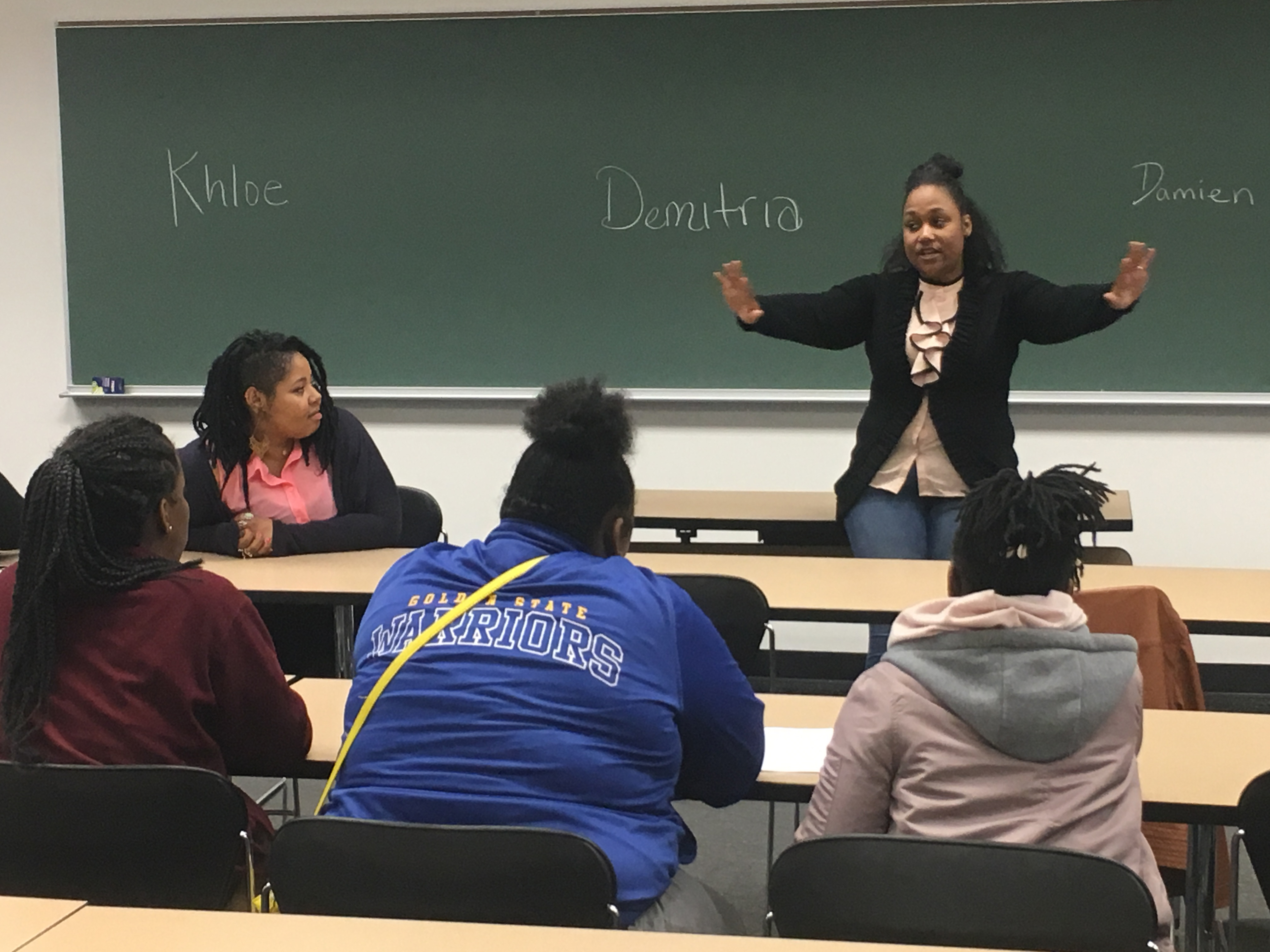
For many students in disadvantaged communities, graduating from college is even harder than getting admitted.
“A lot of universities will let you in, but they don’t necessarily help you get out,” says Horace Hall, associate professor of human development and co-founder of the Respect, Excellence, Attitude and Leadership (R.E.A.L.) Youth Program. Without college-educated family members and mentors to offer guidance and support, students often drop out.
Hall is hoping to change that through a partnership he piloted with the ARK of St. Sabina last spring. The ARK is a community youth center operated by the Faith Community of St. Sabina, whose pastor is the Rev. Michael Pfleger, a noted activist. Located on Chicago’s South Side, the center already offers arts-based life skills programs similar to those that R.E.A.L. has provided to Chicago schools since 2000. Hall and church leaders proposed teaching a different set of skills to teens at St. Sabina.
“Part of what we do through R.E.A.L. is practice the life skills that let you navigate the space that you’re in,” Hall says. Historically, R.E.A.L. has helped teens steer a course through broken homes or dangerous communities. In college, success takes a different kind of wayfinding.
“College can be incredibly difficult at times, not just in terms of cognitive abilities, but also in terms of how to deal with professors and classmates,” he says. Minority students face additional hurdles. “A university’s racial climate and how well students of color, particularly black and Latino males, can successfully navigate that climate is linked to their academic success and ability to stay on track toward graduation.”
R.E.A.L. allows mentors to gain hands-on experiences by thinking on their feet, becoming comfortable with being uncomfortable, and forcing them to think in nontraditional ways.” —Damian Baez
To address these issues, Hall recruited DePaul faculty and staff, COE students and community partners to provide ARK students with a college orientation that went far beyond a campus tour. Once a month for six months, ARK participants came to DePaul to learn about college life. Miranda Standberry-Wallace (SNL ’09, CDM ’12), an adjunct faculty member from the College of Computing and Digital Media, engaged students in a typical class. Consultant Shannon Stone-Winding (SNL ’14) discussed the importance of networking for career development.
Chris Rone (EdD ’11), an associate director in DePaul’s financial aid department, explained admission and aid to the ARK participants. “It is crucially important that first-generation and minority potential college students have information about admission and financial aid as early as possible,” Rone says. “R.E.A.L. provides a needed platform for disseminating such information to those who most need it.”
The sessions were a real confidence builder, says Courtney Holmon, youth program director for the ARK. “Learning about the different forms of financial aid and how to navigate choosing a college and classes helped the students feel more relaxed and ready for their future.”
Several COE students shared their college experiences with the ARK students and were surprised by how much they learned themselves.
“Talking to the young adults in R.E.A.L. was powerful for me, not only as a future teacher but as a college student,” says Demitria Pates, a sophomore majoring in secondary education. “They asked questions that pushed my own view of being in college and opened my eyes to their concerns.”
.jpg) |
Hall Honored |
Horace Hall, associate professor of human development, was inducted into the Society of Vincent de Paul Professors in fall 2017. Members of this DePaul society for exceptional teacher-scholars serve as ambassadors within and outside the university, teach crucial gateway courses, mentor faculty and engage students in scholarly and creative work outside the classroom. In addition, Hall received the prestigious DePaul University Excellence in Teaching Award. He was recognized for both at the university's fall convocation. |
Damian Baez, also a sophomore majoring in secondary education, agreed. “R.E.A.L. allows mentors to gain hands-on experiences by thinking on their feet, becoming comfortable with being uncomfortable and forcing them to think in nontraditional ways.”
In response to the positive feedback, Hall plans to continue the partnership with the ARK and expand it in several ways. He wants to collaborate with other youth and civic programs and deepen the relationship with Stone’s consulting group and Standberry-Wallace’s Plate45 Institute. Further, Hall wants to add parent forums focused on the college experience, increase the number of community and student volunteers, and offer the college orientation at additional schools.

“Research shows that to truly impact young people as a mentor, you have to be more involved in their lives over a longer period of time,” Hall says. “I want to develop a consistent body of students and adults who will work with high school students from their freshman through their senior year and even beyond.”
If you are interested in learning more or volunteering with R.E.A.L., contact Hall at hhall@depaul.edu.